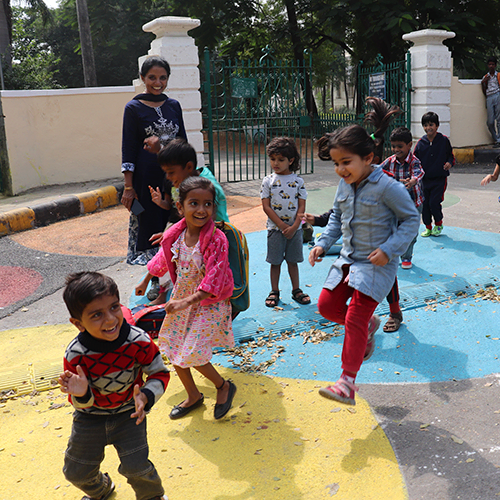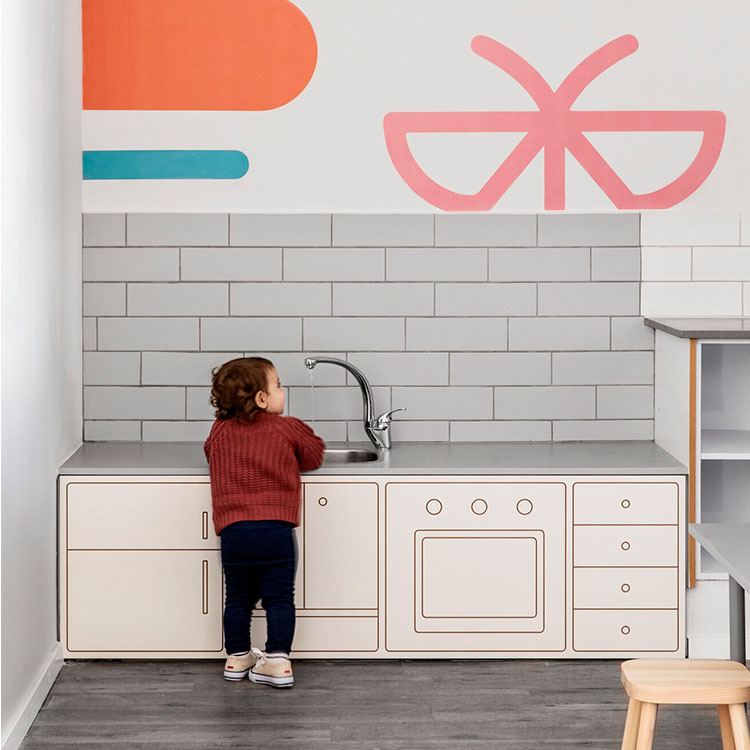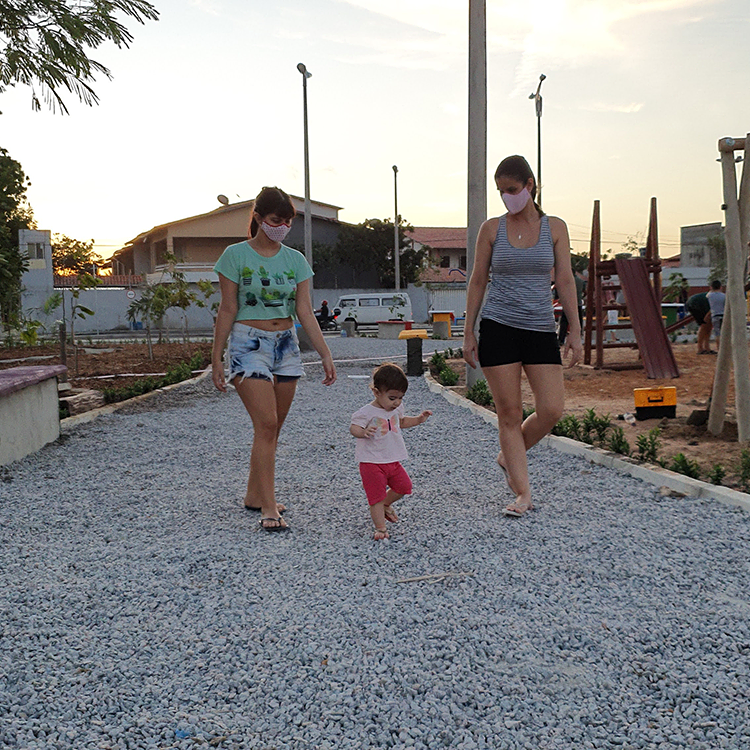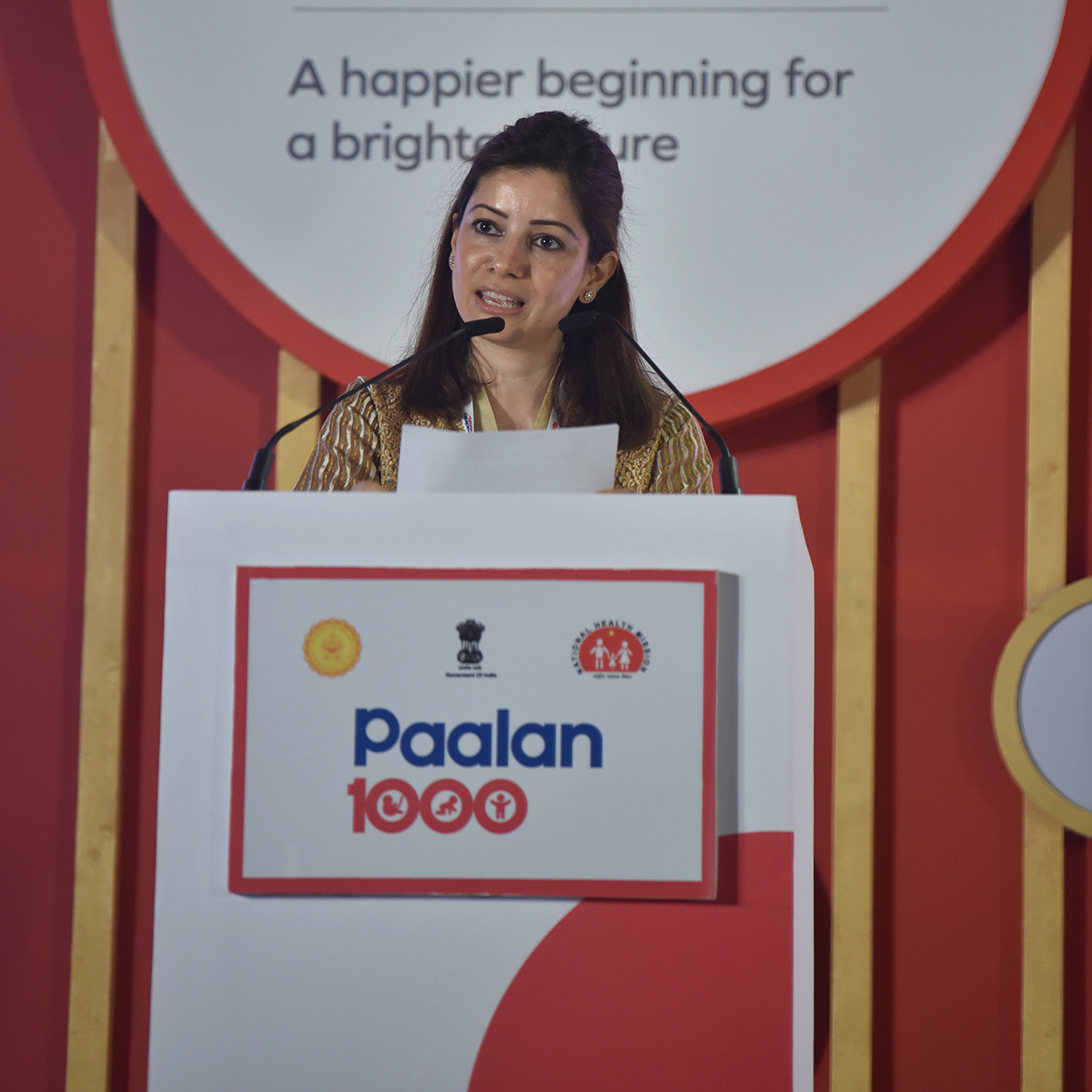If you could experience your city from an elevation of 95 cm – the average height of a three-year-old – what would you change? This is an important mental exercise because early experiences shape the brain and, in turn, the child’s future. Extend that learning and you’ll understand that it has an effect on society as a whole.
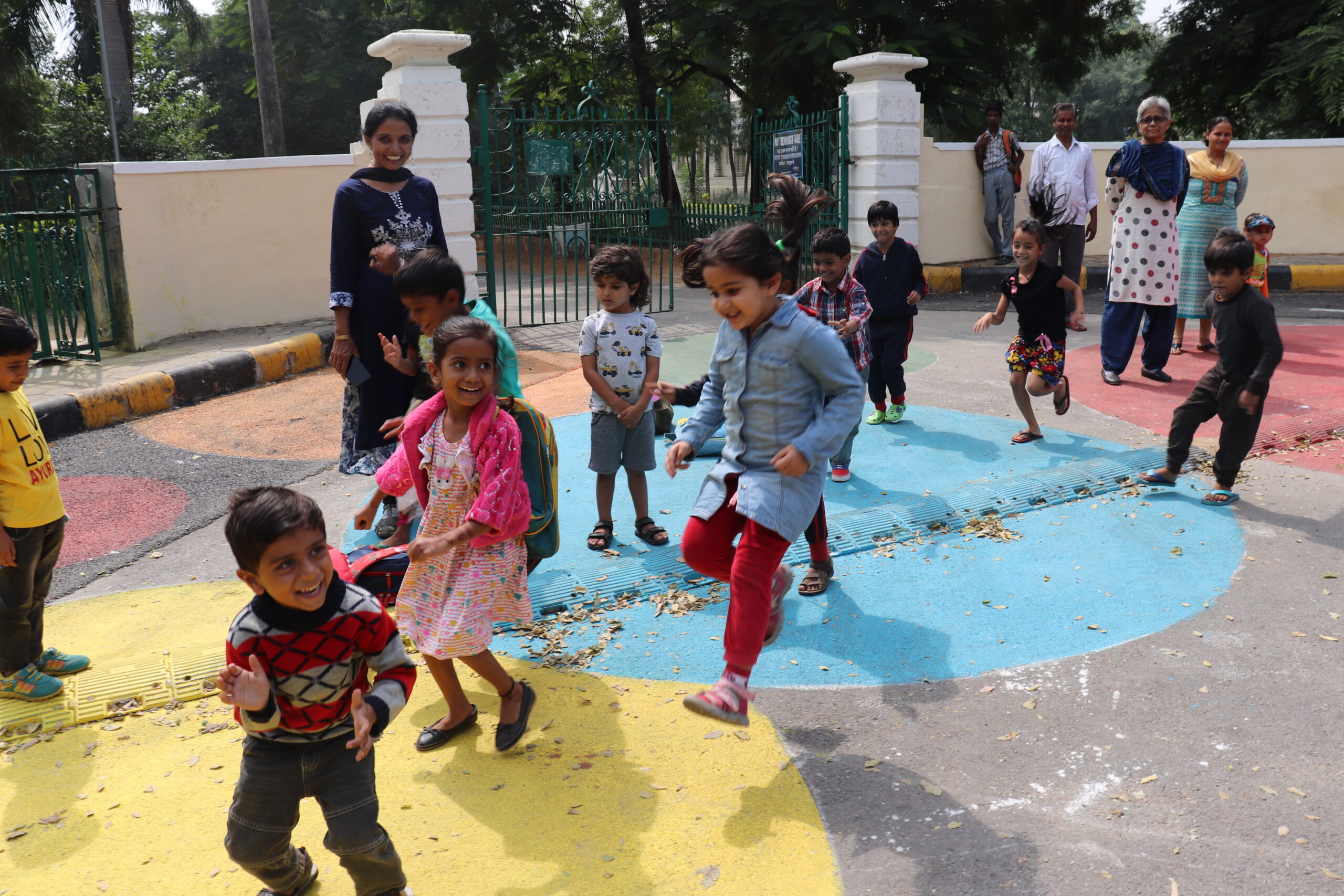
Photo credit: Urban95 Udaipur. Vidya Bhawan Pre-Primary School Entrance, Udaipur
Here’s where clean air and its prioritisation by local administrations is key. This is a critical component of safe, healthy environments for the nation’s youngest generation and vital for its future. To this end, we need to focus on three things:
- Collecting data on the impact of air pollution on babies and toddlers
- Creating awareness on why clean air is important, not just for children’s health but also for national well-being
- Taking corrective steps to improve air quality
So, as a first step, let’s understand the problem thoroughly.
How corrosive is the air?
Newborns and babies take 30 to 60 breaths per minute while toddlers take 24 to 40 – this is the engine of their growth. Adults, by comparison, take 12-18 breaths per minute. At the same time, children have smaller airways and live closer to the ground, which is why they are affected more by air pollutants. Sustained exposure to poor-quality air can have severe consequences: underdeveloped lungs, poor cognitive development, delayed brain maturation.
It is equally devastating for pregnant women: several global studies have shown that 18% to 23% of pre-term births are linked to exposure to a fine particulate matter count of 2.5 or more. Adequate exposure to nature and clean air, on the other hand, helps expectant mothers by increasing their children’s birth weight, reducing parental stress and improving their overall mental health. Children benefit through better mental health, reduced risk of attention-deficit hyperactive disorder, better motor and language skills, and better overall development.
Also, brain development is astonishingly rapid from conception to age two – this is why a healthy childhood lays a lifelong foundation for well-being and learning. Therefore, quality early interventions are important and have wide-ranging impacts, such as:
- Better mother and child health
- Better cognition
- School readiness
- More years in education
- Better health and higher incomes in adulthood
However, the greatest hurdle is lack of understanding about these consequences.
Awareness is the best medicine
Social awareness is the key to better community health. The rate of air pollution is increasing fast but we are merely managing the problem, not solving it. The crisis requires better data because every child is exposed to different air quality and Indian cities need a holistic approach towards it.
Understanding the wider impact on countries and economies, governments, non-governmental organisations, technical experts, and social foundations around the world are teaming up to find ways to reduce emissions and air pollutants in order to:
- Reap rapid and sustainable health benefits
- Address inequality
- Mitigate climate change
- Support better development outcomes for babies, toddlers and older children
- Ensure a sustainable future for all
This is extremely important in the Indian context because the country is among the worst hit by air pollution. The DAPHNE (Delhi Air Pollution: Health & Effects) study, for which the All India Institute of Medical Sciences researched the effect of air pollution on children, showed that in the national capital the impact of air pollution increased the risk of asthma and reduced lung function among children. In adulthood, they are prone to diabetes, heart ailments and stroke.
The answer is blowing in the wind
Encouragingly, cities are increasingly focusing on understanding the extent of the problem in order to take corrective policy action.
Apart from large data collection stations, low-cost, mobile air quality monitors can offer a means to track the amount of pollution in the air and provide decision makers with data and information to be able to take measures to mitigate pollution. These monitors allow tracking through smartphone apps and point out variations from national and international norms.
Using mobile air quality monitors, four cities – Indore, Vadodara, Rourkela and Kakinada – recently experimented with collecting data from pilot sites, which are frequented by young children and their caregivers, proposed under the Nurturing Neighbourhoods Challenge (NNC). The NNC is a competition among Indian cities to make their neighbourhoods friendly for young children and their families. The data collection sites included transit stops, anganwadis, primary health centres, parks and public open spaces.
The NNC is hosted by the Smart Cities Mission, Ministry of Housing and Urban Affairs, in collaboration with the Bernard van Leer Foundation and technical partner World Resources Institute (WRI) India. Over this three-year initiative, selected cities – based on their proposals, readiness and commitment – will receive technical support and capacity-building to develop, pilot and scale solutions in public spaces and around facilities to enhance the health and well-being of babies, toddlers and their caregivers.
City officials, with the support of WRI India, recorded measurements from the monitors at different times and on different days over a period to reveal variations in air quality. These included stationary and mobile measurement to achieve a holistic measurement of air quality in spaces where children sit, wait, play and spend time, and also along peripheral streets, central paths and nearby junctions.
The experiment was part of each city’s larger goal to focus on clean, green, sustainable neighbourhoods for young children and initiate a process of data collection related to air quality.
Through experiments and initiatives like these, cities that focus on data related to clean air, and especially related to young children under the age of five, can understand the extent of the problem, take corrective action and formulate policies to ensure cleaner air for their youngest citizens.
All children and their caregivers deserve healthy, safe environments. Nothing could be a greater investment in our future than ensuring clean air and quality overall development for babies and toddlers.
By: Rushda Majeed, Representative India, Bernard van Leer Foundation
